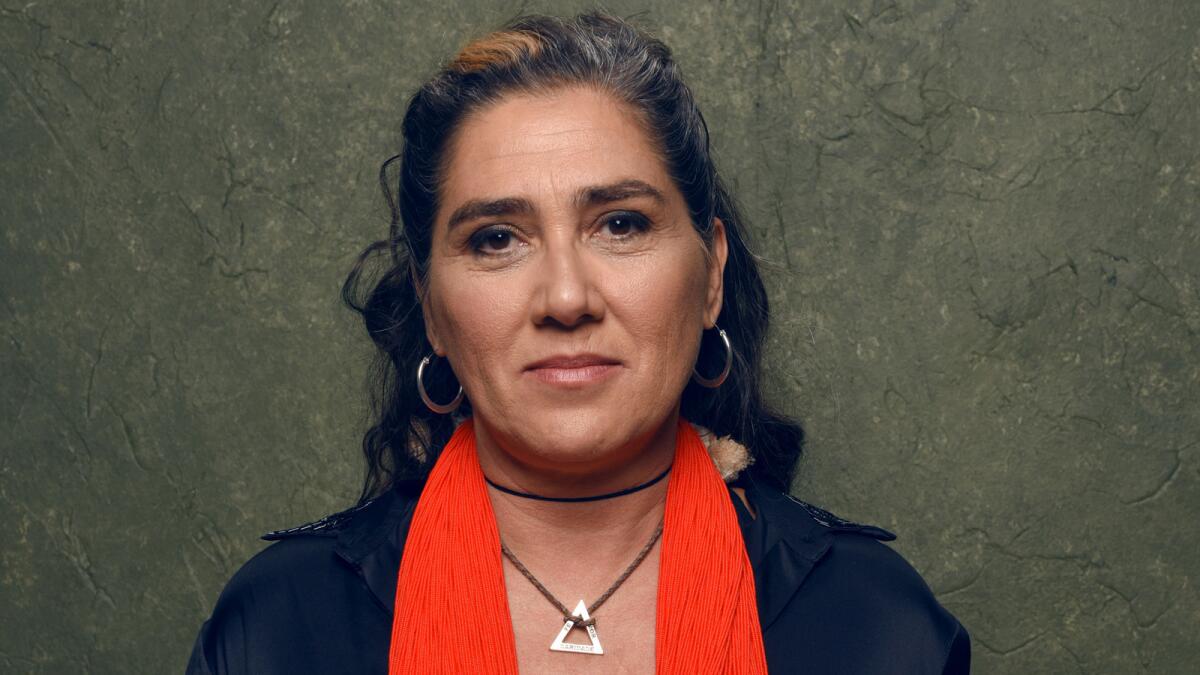Anna Muylaert tackles Brazilian child-rearing customs in ‘The Second Mother’

Filmmaker Anna Muylaert of “The Second Mother” at the Village at the Lift Presented by McDonald’s McCafe during the 2015 Sundance Film Festival on Jan. 26, 2015, in Park City, Utah.
- Share via
When Brazilian filmmaker Anna Muylaert had her first child 20 years ago, she learned first-hand that child rearing in her country was left in the hands of women — whether it be the mother or a nanny.
“It is not a work that is well valued by men,” said Muylaert (“Smoke Gets in Your Eyes”). “This is a very sexist country. I divorced and raised my two kids alone. But I am not complaining about it. I would have liked to have had help, but I think mother’s work is sacred work.”
In 1995, she began working on the script of “The Second Mother,” which opens Friday. The film, which deals with motherhood and social structure, evolved over the years as circumstances changed in the country.
SIGN UP for the free Indie Focus movies newsletter >>
“Second Mother,” which won a special grand prize at this year’s Sundance festival for the performances of stars Regina Casé and Camila Márdila, revolves around Val, a housekeeper in São Paulo who loves her job and especially enjoys being the surrogate mother to her wealthy employees’ teenage son. But when her estranged teenage daughter, Jessica (Márdila), whom Val left with family as a baby to go to work, suddenly arrives, the social dynamic in the household changes.
Muylaert showed the movie recently in Brazil to two very different audiences: One screening was for maids and nannies she knows — including the woman who worked for her parents for 30 years and now works for her younger sister.
Most of the women, Muylaert said, “cried a lot. It was very beautiful. They were looking at me [and saying], ‘How do you know all of these secrets?”’
Casé and friends attended the second screening. “Everybody loved the film very much,” she said. But for some, it hit a bit too close to home.
“Some of them said, ‘I am so ashamed. I have to go home and talk to my maid.’ People liked the film, but they see themselves in a mirror.”
The country’s social structures, Muylaert noted, “are not written. But everybody knows them, so the film kind of lives it. These are the rules, and in two hours, you see all of these rules together and you realize what it means.”
It wasn’t hard for Casé to walk in Val’s shoes.
When Casé had her first daughter 24 years ago, her baby-sitter left her young son to come work with her. “Once we knew she had a son, I asked to her bring the son back to our house,” Casé recalled. “He now works with my husband as a cameraman and travels all around the world. If you cannot change the world, at least you can change the situation that is close to you.”
Though “there are still a lot of women like Val,” noted Muylaert, “the government about four or five years ago made a new law where you can have a maid, but [only] for eight hours, just like a normal worker. And if you want her to sleep [at the house] and work, you have to pay extra. It is still normal, because it is also connected with the fact that we don’t have schools for small kids. So it is almost the only option a person has when a woman has to work.”
MORE:
‘Rosenwald’ documentary looks at Jewish philanthropist who helped black schools
Watts riots still mostly off Hollywood’s radar after 50 years
‘We Are Your Friends’ director Max Joseph on Zac Efron, EDM and that thing called stress
More to Read
Only good movies
Get the Indie Focus newsletter, Mark Olsen's weekly guide to the world of cinema.
You may occasionally receive promotional content from the Los Angeles Times.











